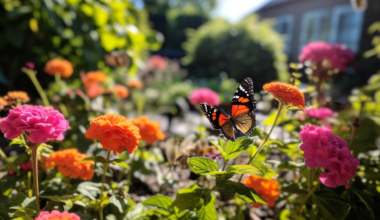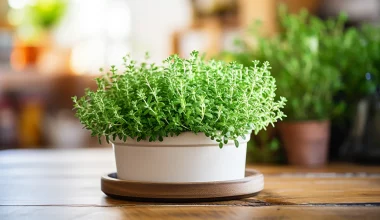Gardening is much more than a hobby or a means of growing plants. It is a powerful and transformative activity that can have a profound impact on our mental health and well-being. The act of nurturing and tending to plants, connecting with nature, and immersing ourselves in the beauty of a garden can be incredibly therapeutic. In this article, we will explore the fascinating connection between gardening and mental health, discussing the benefits it offers, practical tips for incorporating gardening into your life, and the science behind its positive effects.
The Healing Power of Nature
For centuries, humans have sought solace and healing in the natural world. There’s something about the sights, sounds, and scents of nature that calms and rejuvenates our minds and bodies. Gardening, in particular, provides a unique opportunity to engage with nature on a deeper level, creating a personal sanctuary where we can find respite from the demands of our daily lives.
Benefits of Gardening for Mental Health
- Stress Relief: When we garden, we find an escape from the pressures of our busy lives. Activities like planting, weeding, or pruning allow us to focus on the present moment, reducing stress levels and promoting relaxation.
- Mood Enhancement: Working with plants and spending time in nature has been proven to boost our mood and increase feelings of happiness and well-being. Engaging in physical activity, being exposed to sunlight, and immersing ourselves in the natural beauty of plants release endorphins and other mood-lifting chemicals in our brains.
- Mindfulness and Mind-Body Connection: Gardening encourages us to practice mindfulness by fully embracing the present moment and connecting with the sensory experiences of the garden. It helps us develop a deeper connection with our bodies and the world around us.
- Increased Self-Esteem: Watching plants grow and thrive under our care instills a sense of accomplishment and boosts self-esteem. Nurturing living things and witnessing the fruits of our labor provide a sense of purpose and fulfilment.
- Social Connection: Gardening can be a social activity that brings people together. Joining a community garden or participating in gardening clubs allows you to connect with like-minded individuals, share knowledge and experiences, and build meaningful relationships.
Practical Tips for Incorporating Gardening into Your Life
- Start Small: If you’re new to gardening, begin with a few potted plants or a small plot in your backyard. Choose plants that are easy to grow and require minimal maintenance, such as herbs or succulents. As you gain confidence and experience, you can expand your garden.
- Create a Relaxing Space: Designate a specific area in your garden as a peaceful retreat. Add comfortable seating, create a cozy nook, or incorporate elements that bring you joy, such as a water feature or wind chimes. This space can serve as your personal sanctuary for relaxation and reflection.
- Embrace the Seasons: Take advantage of the changing seasons and plan your garden accordingly. Plant spring bulbs for vibrant blooms, enjoy the lushness of summer, marvel at the vibrant foliage of fall, and appreciate the tranquility of a winter garden. Each season offers its own beauty and opportunities for growth.
- Involve Your Senses: Engage all your senses while gardening. Listen to the sound of birds chirping, feel the texture of soil between your fingers, inhale the fragrance of flowers, and savour the taste of fresh herbs or vegetables you’ve grown. Immersing yourself in the sensory experience of gardening enhances the therapeutic benefits.
- Practice Mindful Gardening: Approach gardening as a mindful practice. Focus on each task, whether it’s planting a seed, removing weeds, or watering plants. Pay attention to the sensations, colours, and scents around you. Be fully present in the moment and let go of any distractions or worries.
The Science Behind Gardening and Mental Health
Numerous studies have highlighted the positive effects of gardening on mental health:
A study published in the Journal of Health Psychology revealed that gardening reduced stress levels, promoted positive mood, and led to improved well-being and quality of life.
Another study in the Journal of Environmental Psychology demonstrated that gardening activities improved self-esteem, increased feelings of mastery and competence, and reduced symptoms of depression.
Research conducted by the University of Exeter Medical School found that exposure to natural environments, including gardens, positively impacted mental health and well-being, reducing the risk of depression and anxiety.
Final Thought
Gardening is a powerful tool for nurturing our mental health and finding peace amidst the chaos of everyday life. It offers an array of benefits, from stress relief and mood enhancement to increased self-esteem and social connection.
By immersing ourselves in nature, we tap into the healing power of plants and create a personal sanctuary that brings joy, purpose, and tranquility to our lives.
So, whether you have a spacious garden or a few pots on a balcony, embrace the therapeutic benefits of gardening and let it blossom your mental well-being.






